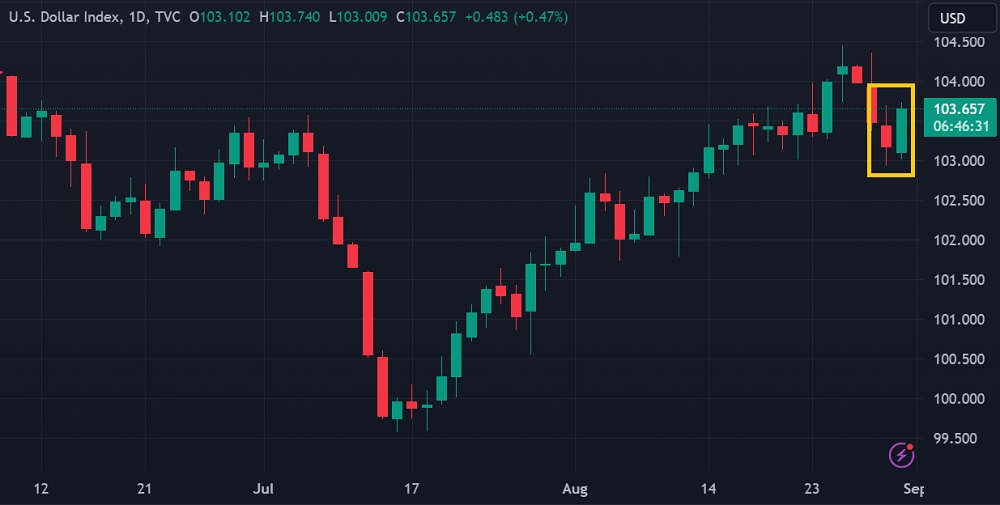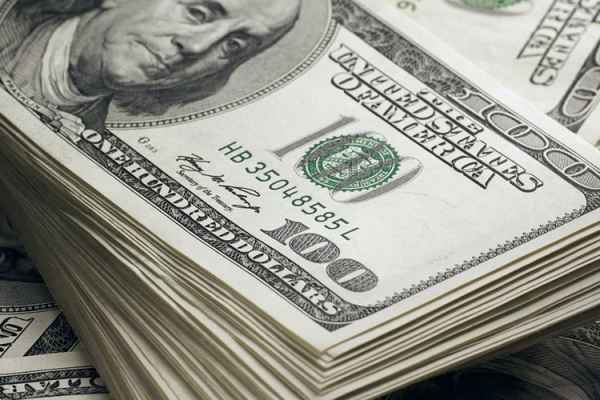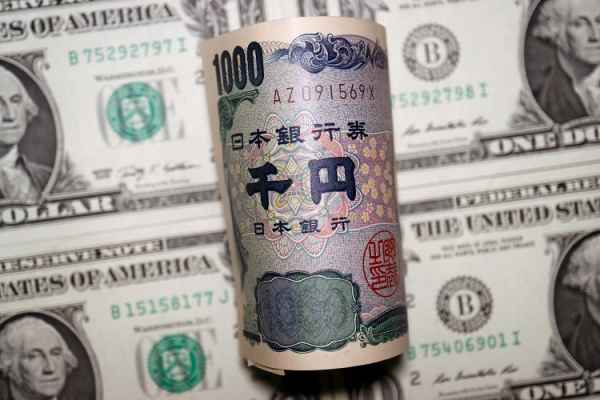Nonfarm Payroll (NFP) recorded an increase of 187k jobs in August 2023, surpassing both consensus estimates and previous data.
A series of U.S. labor market data released today (September 1st) showed a mixed situation. Nevertheless, the U.S. Dollar received support from the increase in Nonfarm Payroll (NFP) figures. The U.S. Dollar Index (DXY) immediately surged by more than 0.5% to 104.17, while the greenback outperformed its rivals in the forex market.

Nonfarm Payroll recorded an additional 187k jobs in August 2023. This figure exceeds the increase of 157k in the previous period and surpasses the consensus estimate set at 170k.
Other details in this data package are less encouraging. The U.S. unemployment rate increased significantly from 3.5% to 3.8%, whereas the previous consensus expected it to remain stable. Average hourly earnings also declined from 4.4% to 4.3% annually.
Several specific situations underlie the anomalies in this data. First, there was an organized strike involving over 16,000 Hollywood actors who are members of the Screen Actors Guild-American Federation of Television and Radio Artists (SAG-AFTRA) since mid-July due to a dispute with the Alliance of Motion Picture and Television Producers (AMPTP). Second, Yellow, one of the largest transportation companies in the U.S., filed for Chapter 11 bankruptcy in early August and laid off approximately 30,000 employees.
These situations led to a surge in the U.S. unemployment rate, although creating new jobs was also quite robust. Market participants are becoming increasingly confident that The Fed will not raise interest rates in September amid these developments. However, hope remains for one more interest rate hike after September.
"The markets are reacting positively to that jobs number," said Alex McGrath, CIO for NorthEnd Private Wealth in Greenville, South Carolina. "Is it going to move the Fed one way or the other? We don't believe it will."
"We believe we're going to get a further (interest rate) increase this year because of what we've been seeing in the commodity space," McGrath added.
The statement suggests that the increase in commodity prices implies that inflation will persist and, in their view, justifies a future rate hike.

 Dedicated FREE FOREX VPS
Dedicated FREE FOREX VPS Free FOREX Virtual Private Server
Free FOREX Virtual Private Server MT4 Demo Contest, Get $500
MT4 Demo Contest, Get $500 Sign Up for an Account, Claim 60% Deposit Bonus
Sign Up for an Account, Claim 60% Deposit Bonus Free MT4/MT5 VPS 2024
Free MT4/MT5 VPS 2024 Send E-mail and Get Free Merchandise
Send E-mail and Get Free Merchandise $1K Refer a Friend Bonus for Pepperstone Pro clients
$1K Refer a Friend Bonus for Pepperstone Pro clients Maximize Your Earnings with 100% Deposit bonus
Maximize Your Earnings with 100% Deposit bonus Trade to Win, $5,000 Monthly Demo Contest
Trade to Win, $5,000 Monthly Demo Contest Claim 30% + 15% Deposit Bonus from LiteFinance
Claim 30% + 15% Deposit Bonus from LiteFinance






